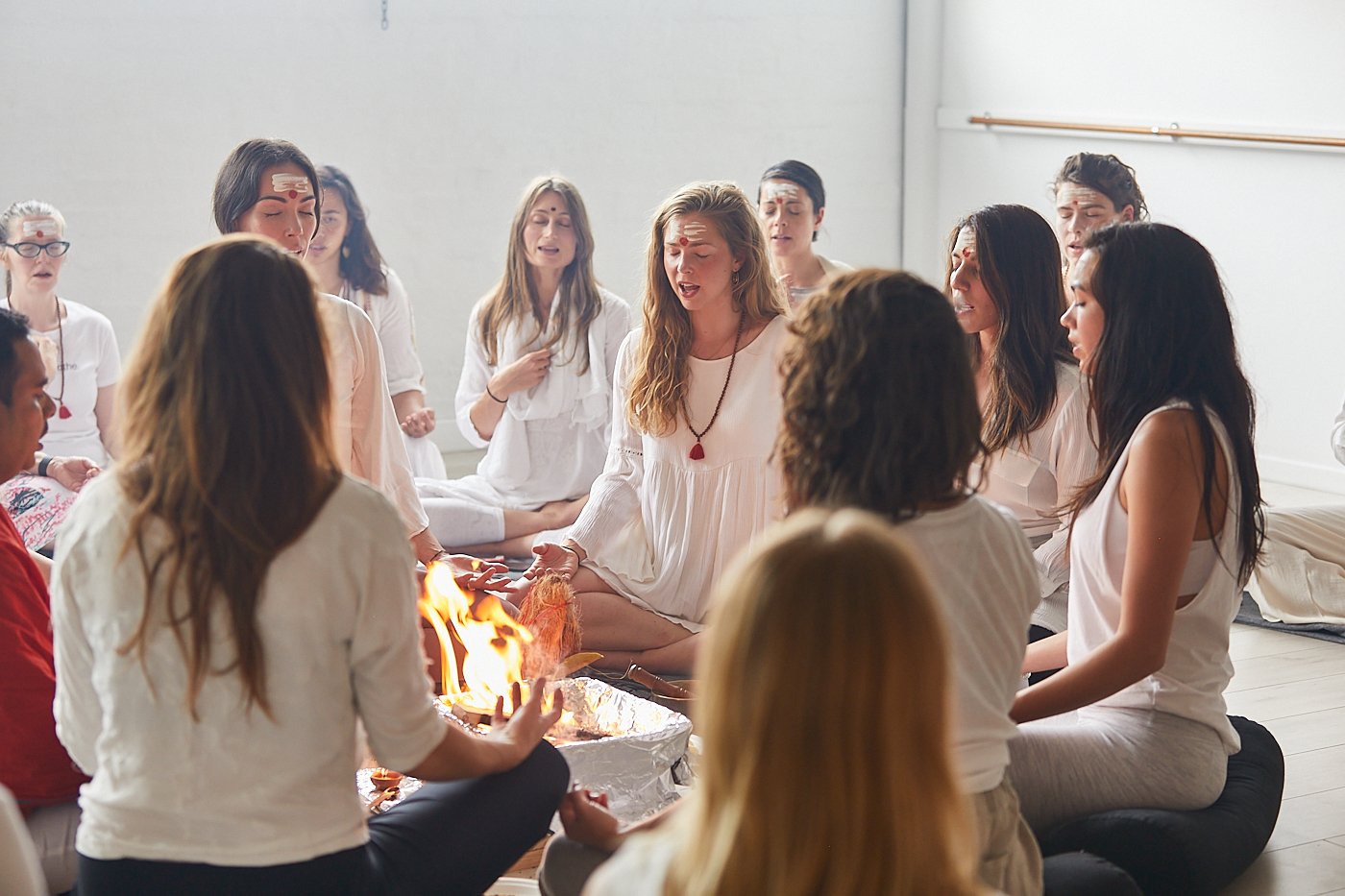SVADHYAYA
THE FOURTH NIYAMA OF PATANJALI'S YOGA SUTRAS
Svadhyaya - the word itself is made up of Sva, meaning own, self, or the human soul, and Adhyaya, meaning lesson, lecture, or reading, and means the practice of studying scriptures, as well as a practice of studying the Self.
Svadhyaya is just one of the 5 Niyamas, as found within the text "The Yoga Sutras” by the ancient Indian sage, Patanjali- and it’s one of the texts we study in our 200-hour Yoga Teacher Training. Niyama is the Sanskrit word that refers to the yogi’s personal inner duties that support growth and expansion. Svadhyaya is part of these inner observances as it is thought that to “Study thy self, is to discover the divine”.
When we have the space to study ‘the self’ we can begin to differentiate between our daily habits and the outer shell of who we are and start to uncover the deeper Self and the essence of who we truly are. To practice Svadhyaya is to come into an understanding of the self vs the Self. The Ego vs the Soul. The psyche vs your eternal spirit.
When we are too caught up with our ego, we often find ourselves not aligning with our true beliefs or more importantly, our intuition.
By paying attention to studying our ‘self’, we can become more aware of the things we do that harm us, and also those which serve us and bring us closer to that process of ‘yoking’ or ‘uniting’ with the true Self. (Remember the meaning of Yoga is to “yoke”.)
One method of practicing Svadhyaya is through noticing what happens during a yoga class. Once we learn to study our habits on the mat, we can often recognise our behaviour off the mat too- as the way we practice yoga can be a reflection of the way show up in our lives.
Yoga is a powerful practice in Svadhyaya because when we’re on the mat, we have nowhere to hide. The daily distractions of phones, chores, emails, and TV are no longer there to take our minds away from ourselves. We actually have to pay attention…. and while this can be a little intimidating at first, as it can reveal problems we have been avoiding, in time this clarity is liberating. And through freedom comes power.
To learn more about the philosophy and history of yoga, as well as the Niyamas, join us for our 2024 Yoga Teacher Training. A big part of our training focuses on the studies of vedic, tantric & hatha yoga philosophy and history in the hope that more yogis are embedded in this rich tradition.
TLC 200hr Yoga Teacher Training
Looking for the best online yoga teacher training that will teach you not only asana, but also breathwork, kundalini yoga, meditation, the subtle body and mantra?
Head to our website for full details.


